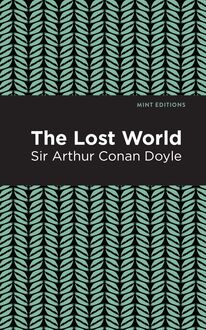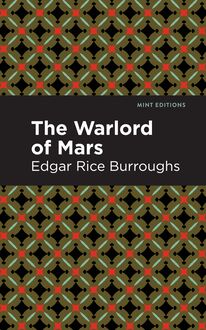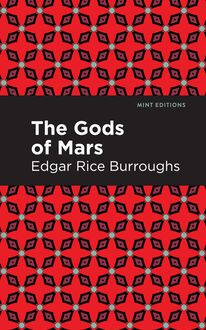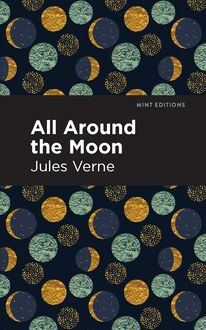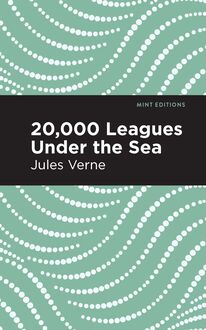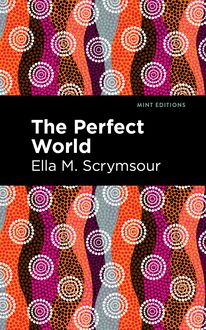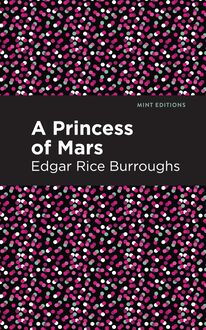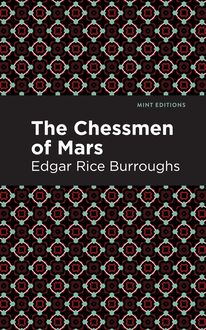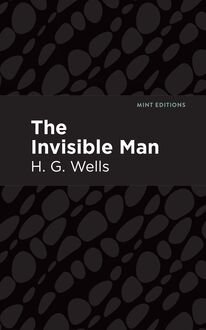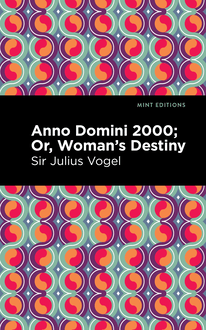-
 Univers
Univers
-
 Ebooks
Ebooks
-
 Livres audio
Livres audio
-
 Presse
Presse
-
 Podcasts
Podcasts
-
 BD
BD
-
 Documents
Documents
-
- Cours
- Révisions
- Ressources pédagogiques
- Sciences de l’éducation
- Manuels scolaires
- Langues
- Travaux de classe
- Annales de BEP
- Etudes supérieures
- Maternelle et primaire
- Fiches de lecture
- Orientation scolaire
- Méthodologie
- Corrigés de devoir
- Annales d’examens et concours
- Annales du bac
- Annales du brevet
- Rapports de stage
La lecture à portée de main
Vous pourrez modifier la taille du texte de cet ouvrage
Découvre YouScribe en t'inscrivant gratuitement
Je m'inscrisDécouvre YouScribe en t'inscrivant gratuitement
Je m'inscrisEn savoir plus
Vous pourrez modifier la taille du texte de cet ouvrage
En savoir plus

Description
The Devil-Tree of El Dorado (1897) is a novel by Frank Aubrey. Set in the colony of British Guiana, the novel falls into the lost world genre of science fiction made popular by such writers as H. Rider Haggard, Jules Verne, and Edgar Rice Burroughs. What he lacks in name-recognition alongside these titans of popular fiction, Aubrey makes up for with a keen storytelling ability and a talent for merging history and geography with unsettling visions of monsters and gods. A staunch imperialist, Aubrey’s novel exhibits troubling depictions of the author’s racist ideology, and remains a difficult yet essential example of the function of literature in upholding global white supremacy. “Beneath the verandah of a handsome, comfortable-looking residence near Georgetown, the principal town of British Guiana, a young man sat one morning early in the year 1890, attentively studying a volume that lay open on a small table before him.” As all adventurers know, fortune tends to favor the bold. While this maxim, of course, never ensures success, it does grant confidence to those bold enough—or crazy enough—to push themselves to extremes in search of adventure. With nothing to lose and everything to gain, a small expedition sets out through the jungle to find the lost city of El Dorado, confident their destination—the treacherous Mt. Roraima—could hide what remains of a once-vibrant civilization. Despite the odds, they make it to the top of the plateau, where they discover a terrible being. With a beautifully designed cover and professionally typeset manuscript, this edition of Frank Aubrey’s The Devil-Tree of El Dorado is a classic of British science fiction reimagined for modern readers.
Sujets
Informations
| Publié par | Mint Editions |
| Date de parution | 28 septembre 2021 |
| Nombre de lectures | 0 |
| EAN13 | 9781513224602 |
| Langue | English |
| Poids de l'ouvrage | 3 Mo |
Informations légales : prix de location à la page 0,0500€. Cette information est donnée uniquement à titre indicatif conformément à la législation en vigueur.
Extrait
The Devil-Tree of El Dorado
Frank Aubrey
The Devil-Tree of El Dorado was first published in 1896.
This edition published by Mint Editions 2021.
ISBN 9781513298801 | E-ISBN 9781513224602
Published by Mint Editions®
minteditionbooks.com
Publishing Director: Jennifer Newens
Design & Production: Rachel Lopez Metzger
Project Manager: Micaela Clark
Typesetting: Westchester Publishing Services
C ONTENTS
P REFACE
I. “W ILL NO ONE EXPLORE R ORAIMA ?”
II. M ONELLA
III. T HE J OURNEY FROM THE C OAST
IV. T HE FIRST VIEW OF R ORAIMA
V. I N THE ‘D EMONS ’ W OOD ’
VI. T HE M YSTERIOUS C AVERN
VII. T HE C ANYON WITHIN THE M OUNTAIN
VIII. A LONE ON R ORAIMA ’ S S UMMIT
IX. V ISION OR R EALITY ?
X. I N S IGHT OF E L D ORADO
XI. U LAMA , P RINCESS OF M ANOA
XII. A P RELIMINARY S KIRMISH
XIII. A K ING ’ S G REETING
XIV. D AKLA
XV. M ARVELS OF M ANOA
XVI. L EONARD AND U LAMA
XVII. T HE F IGHT ON THE H ILLSIDE
XVIII. T HE L EGEND OF M ELLENDA
XIX. H OPES AND F EARS
XX. T HE M ESSAGE OF A PALANO
XXI. T HE G REAT D EVIL -T REE
XXII. S MILES AND T EARS
XXIII. T HE D EVIL -T REE BY M OONLIGHT
XXIV. T RAPPED !
XXV. ‘I N THE D EVIL -T REE ’ S L ARDER !’
XXVI. C ORYON
XXVII. O N THE ‘D EVIL -T REE ’ S L ADLE !’
XXVIII. R ALLYING TO THE C ALL
XXIX. ‘T HOU A RT MY L ORD M ELLENDA !’
XXX. A T ERRIBLE V ENGEANCE !
XXXI. ‘T HE S ON OF A PALANO !’
XXXII. T HE T REE ’ S L AST M EAL
XXXIII. T HE L AST OF THE G REAT D EVIL -T REE
XXXIV. A M ARRIAGE AND A P ARTING
XXXV. J UST IN T IME !
XXXVI. T HE E ND
P REFACE
Shall Roraima 1 Be Given up to Venezuela?
Shall Roraima be handed over to Venezuela? Shall the mysterious mountain long known to scientists as foremost among the wonders of our earth—regarded by many as the greatest marvel of the world—become definitely Venezuelan territory?
This is the question that hangs in the balance at the time these words are being written, that is inseparably associated—though many of the public know it not—with the dispute that has arisen about the boundaries of British Guiana.
Ever since Sir Robert Schomburgk first explored the colony at the expense of the Royal Geographical Society some sixty years ago, Roraima has remained an unsolved problem of romantic and fascinating interest, as attractive to the ‘ordinary person’ as to the man of science. And to those acquainted with the wondrous possibilities that lie behind the solution of the problem, the prospect of its being handed over to a country so little worthy of the trust as is Venezuela, cannot be contemplated without feelings of disappointment and dismay.
This is not the place in which to give a long description of Roraima. It will suffice here to say that its summit is a table-land which, it is believed, has been isolated from all the rest of the world for untold ages; no wilderness of ice and snow, but a fertile country of wood and stream, and, probably, lake. Consequently it holds out to the successful explorer the chance—the probability even—of finding there hitherto unknown animals, plants, fish. In this respect it exceeds in interest all other parts of the earth’s surface, not excepting the polar regions; for the latter are but ice-bound wastes, while Roraima’s mysterious table-land lies in the tropics but a few degrees north of the equator.
Why, then, it may be asked, have our scientific societies not exhibited more zeal in the solving of the problem presented by this strange mountain? Why is it that unlimited money can, apparently, be raised for expeditions to the poles, while no attempt has been made to explore Roraima? Yet, sixty years ago, the Royal Geographical Society could find the money to send Sir Robert Schomburgk out to explore British Guiana—indeed, it is to that fact that we owe the discovery of Roraima—but nothing has been done since. Had the good work thus begun been followed up, we should today have been able to show better reason for claiming Roraima as a British possession. But, as the writer of the article in the Spectator quoted on page 3 says, “we leave the mystery unsolved, the marvel uncared for.” This article is commended to the perusal of those interested in the subject, as also are the following books, which give all the information at present available, viz.—Mr. Barrington Brown’s ‘Canoe and Camp Life in British Guiana,’ and Mr. Boddam-Whetham’s ‘Roraima and British Guiana.’ Mr. Im Thurn’s ‘Among the Indians of British Guiana’ should also be mentioned, since it contains references to Roraima, though the author did not actually visit the mountain, as in the case of the first named.
As an illustration of the confusion and uncertainty that prevail as to the international status of this unique mountain, it may be mentioned that in the map of British Guiana which Sir Robert Schomburgk drew out for the British Government, it is placed within the British frontier. But in the map of the next Government explorer, Mr. Barrington Brown—‘based,’ he says, ‘upon Schomburgk’s map’—it is placed just inside the Venezuelan boundary; and no explanation is given of the apparent contradiction. Again, another authority, Mr. Im Thurn (above referred to), Curator of the Museum at Georgetown (the capital of the colony), in his book says that Roraima “lies on the extreme edge of the colony, or perhaps on the other side of the Brazilian boundary.” These references show the obscurity in which the whole matter is at present involved.
Apart, however, from the special interest that surrounds Roraima owing to the inaccessible character of its summit, 2 it is of very great geographical importance, from the fact that it is the highest mountain in all that part of South America, i.e. , in all the Guianas, in Venezuela, and in the north-east part of Brazil. Indeed, we must cross Brazil, that vast country of upwards of three million square miles, to find the nearest mountains that exceed in height Roraima. Consequently, it forms the apex of the water-shed of that part of South America; and it is, in fact, the source of several of the chief feeders of the great rivers Essequibo, Orinoco and Amazon. Schomburgk, in pointing this out, dwelt strongly upon the importance of the mountain to British Guiana, and insisted that its inclusion within the British boundary was a geographical necessity.
Finally, Sir Robert’s brother, Richard Schomburgk, a skilled botanist, who had visited almost all parts of Asia and Africa in search of orchids and other rare botanical productions, tells us that the country around Roraima is, from a botanical point of view, one of the most wonderful in the world. “Not only the orchids,” he says, “but the shrubs and low trees were unknown to me. Every shrub, herb and tree was new to me, if not as to family, yet as to species. I stood on the border of an unknown plant zone, full of wondrous forms which lay as if by magic before me… Every step revealed something new.” (‘Reissen in Britisch Guiana,’ Leipzig, vol. ii, p. 216.)
Are our rulers, in their treatment of the question, bearing these facts sufficiently in mind? Are they as keenly alive as are the Venezuelans to the importance of Roraima? If they are, there is no sign of it; for while, in the Venezuelan statements of their case, there are lengthy, emphatic, and repeated references to the importance of Roraima, on the English side—in the English press even—there is scarcely a word about it.
From these observations it will be seen that there is reason to fear we may be on the point of allowing one of the most scientifically interesting and geographically important spots upon the surface of the globe to slip out of our possession into that of a miserable little state like Venezuela, where civil anarchy is chronic, and neither life nor property is secure.
One of the avowed objects of this book, therefore, is to stimulate public interest, and arouse public attention to the considerations that actually underlie the ‘Venezuelan Question,’ as well as to while away an idle hour for the lovers of romance.
It has been suggested that, if it is too late to retain the wonderful Roraima as exclusively British—and to effect this it would be well worth our while to barter away someother portion of the disputed territory—then an arrangement might be come to to make it neutral ground. Standing, as it does, in the corner where the three countries—Brazil, Venezuela and British Guiana—meet, it is of importance to all three, and, no doubt, in such an endeavour, we should have the support of Brazil as against Venezuela.
W ITH REGARD TO THE OFT - DISCUSSED question of the situation of the traditional city of Manoa, or El Dorado—as the Spaniards called it—most authorities, including Humboldt and Schomburgk, agree in giving British Guiana as its probable site. We are told that it stood on an island in the midst of a great lake called ‘Parima’; but no such lake is now to be found in South America anywhere near the locality indicated. An explanation of the mystery, however, is afforded by the suggestion that such a great lake, or inland sea, almost certainly existed at one time in precisely this part of the continent; in that case what are now mountains in the country would then have been islands.
Indeed, most of British Guiana lies somewhat low, and it is estimated that if the highlands were to sink two thousand feet the whole country would be under water—the mountain summits excepted—and there would then be only ‘a narrow strait’ between the Roraima range and the Andes. In this great supposed ancient lake the group of islands now represented by mountain summits might well have been the home of a powerful and conquering race—as is today Japan with its group of more than three thousand islands—and Roraima, as the highest, and therefore the most easily defensible, may very well have been selected as their fastness, and the site of their capital city.
Schomburgk thus states his speculations upon the point
-
 Univers
Univers
-
 Ebooks
Ebooks
-
 Livres audio
Livres audio
-
 Presse
Presse
-
 Podcasts
Podcasts
-
 BD
BD
-
 Documents
Documents
-
Jeunesse
-
Littérature
-
Ressources professionnelles
-
Santé et bien-être
-
Savoirs
-
Education
-
Loisirs et hobbies
-
Art, musique et cinéma
-
Actualité et débat de société
-
Jeunesse
-
Littérature
-
Ressources professionnelles
-
Santé et bien-être
-
Savoirs
-
Education
-
Loisirs et hobbies
-
Art, musique et cinéma
-
Actualité et débat de société
-
Actualités
-
Lifestyle
-
Presse jeunesse
-
Presse professionnelle
-
Pratique
-
Presse sportive
-
Presse internationale
-
Culture & Médias
-
Action et Aventures
-
Science-fiction et Fantasy
-
Société
-
Jeunesse
-
Littérature
-
Ressources professionnelles
-
Santé et bien-être
-
Savoirs
-
Education
-
Loisirs et hobbies
-
Art, musique et cinéma
-
Actualité et débat de société
- Cours
- Révisions
- Ressources pédagogiques
- Sciences de l’éducation
- Manuels scolaires
- Langues
- Travaux de classe
- Annales de BEP
- Etudes supérieures
- Maternelle et primaire
- Fiches de lecture
- Orientation scolaire
- Méthodologie
- Corrigés de devoir
- Annales d’examens et concours
- Annales du bac
- Annales du brevet
- Rapports de stage
